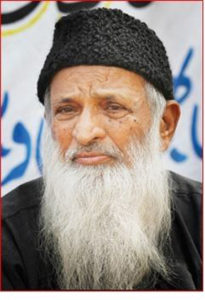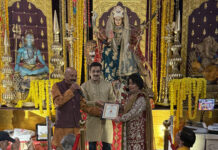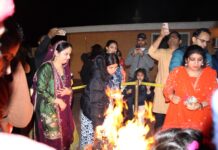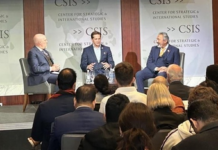
BOSTON: An Evening Group Meeting recently at Cambridge, MA turned out to be a departure from the run of the mill. There was a short story type presentation on the life of Abdul Sattar Edhi, a great humanitarian known as Father Teresa of Pakistan, who died last June at the age of 88
Ali Jafri ,a retired engineer and currently living in Cambridge, gave a short presentation on Edhi’s life and mission and how he worked to serve humanity the best way that he could. The presentation was to an audience of MIT Wednesday Evening Meet Group and the objective was to encourage the audience to take initiatives, however small, designed to bring about a positive change in their surrounding and environment.
Kashif Huda, a member of the MIT Wednesday Evening Group, introduced Ali Jafri to the audience. Jafri also served as the dean of academics for the offshore campus of the University of Southern Queensland, Australia. He was very much impressed and gripped by the work of Abdul Sattar Edhi who was regarded by many Pakistanis as a national hero, devoted his entire life in providing aid to the poor and the needy.
Jafri said that Edhi was appalled at the filth experienced by the inhabitants of the slums of the sprawling cities. Injustice, bribery and robbery were common and basic medical care was absent in such places.The experience had a profound effect on him after he moved to Pakistan following Partition. He set up his tented pharmacy and helped people of all creeds, castes and religions. In the late 1950s he set up the Edhi Foundation, after arriving in Karachi from India aged 20.
Edhi set up a simple pharmacy in a tent in the Jodia Bazaar initially. In 1957, when the Asian flu epidemic had spread in Karachi, he begged for donations on the street. A large donation from a local businessman helped him to buy his first ambulance, which was a pre-runner to the setting up of a huge public welfare organization which now provides various humanitarian services such as hospitals, orphanages, shelters and drug rehabilitation centers, as well as ambulance services to millions of people a year. His foundation ambulances are often the first ones to appear at the scene of terrorist attacks.
The Edhi Foundation is currently the largest welfare organization in Pakistan. Since its inception, it has rescued more than 20,000 abandoned babies, rehabilitated some 50,000 orphans and has trained more than 40,000 nurses. It also runs the world’s largest ambulance service with 1,500 vehicles and offers 24-hour emergency service. In 2005 the Foundation donated $100,000 to the victims of Hurricane Katrina in the United States.
Edhi’s wife Bilquis, a nurse by profession, and children continue to run the Foundation.He and his family lived a modest life in a two-room apartment near the Foundation’s headquarters. Edhi never drew a salary from the funds. Both husband and wife worked together during1965 war between India and Pakistan, looking after the injured and dying. He used to say that his religion is to serve humanity and he believed that all the religions of the world have their basis in humanity.
Jafri concluded his presentation by hoping that late Abdul Sattar Edhi’s tireless work may influence the minds of our younger generation to do more secular humanitarian services and make a difference in the lives of the poor and oppressed.
Geetha Patil






